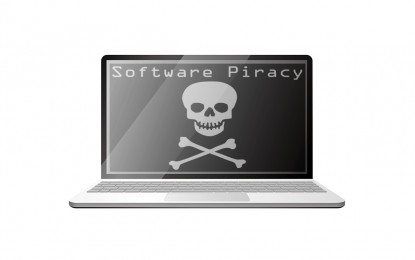
MANILA -- Optical Media Board (OMB) chair and chief executive officer Anselmo Adriano said the National Committee on Intellectual Property Rights (NCIPR) aims to expand the audit on the use of unlicensed software to local government units (LGUs).
In an online press briefing of The Software Alliance (BSA) Wednesday, Adriano said the NCIPR envisioned the Department of Information and Communications Technology (DICT) to lead the audit of software being used in national government agencies, and they are hopeful to extend the audit to LGU level.
He said the conduct of an audit on the use of pirated software in the public sector was proposed during an NCIPR meeting last year.
Adriano added the members of NCIPR also pushed for executive measures to institutionalize the audit of unlicensed software in government agencies.
The use of pirated software is also widespread in the companies in the country, a survey of BSA in 2018 showed.
The BSA Global Software Survey 2018 said 64 percent of companies across the country are “expected to be using unlicensed software”, which are often packaged with malware or contain security vulnerabilities that leave devices open to cyber-attacks.
BSA Senior Director for Asia Pacific Tarun Sawney said that with the coronavirus disease 2019 (Covid-19) pandemic pushing employees to work-from-home, risks on cyberthreats have also increased.
“With this pandemic, the risks have gone up so much more. We have another pandemic of our own in terms of using unlicensed software,” Sawney said.
He added institutions are inclined to use pirated software to reduce cost. However, the cost is higher when the computer has malware attack.
According to a BSA survey, organizations face a “1 in 3 chance” of encountering malware attack when they install unlicensed software packages that can cost a damage of USD10,000 per computer.
It added that when a malware infects an entire company, average cost reached USD2.4 million, higher than installing a legitimate software.
On the other hand, a 20-percent increase in software compliance can improve a company’s profits by 11 percent in the long run, Sawney said.
To advocate the use of licensed software in the Southeast Asian region, BSA launched the Asean Safeguard initiative.
Sawney said the six-month campaign aims to provide 40,000 companies in Asean, of which 10,000 will come from the Philippines, free consultation on software licensing processes to help them prevent cyber-attack damages.
“This is for us to educate them and help them on their path to have a more secure organization,” he said. (PNA)
